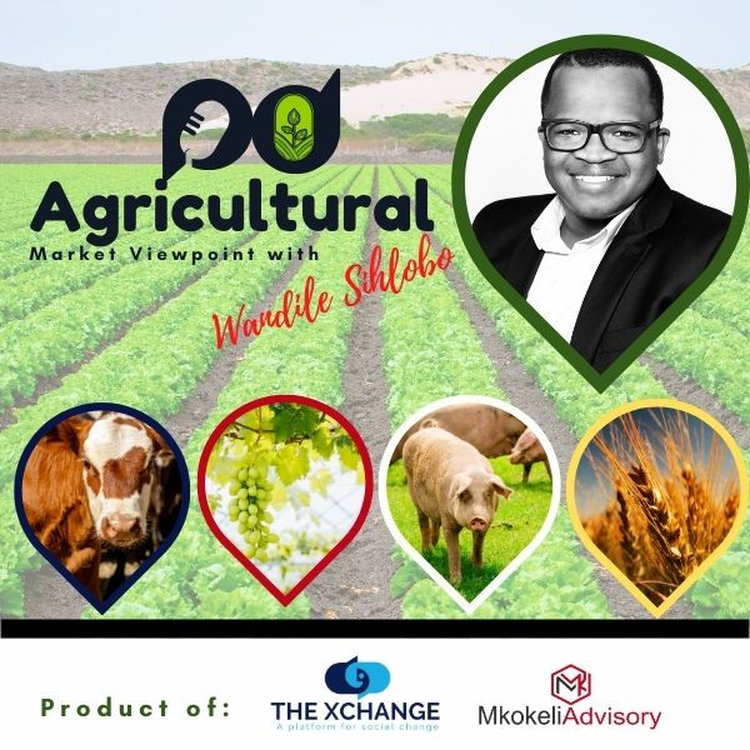
South Africa's food security conditions
Loading player...
October 16th marks World Food Day, a celebration of the founding of the United Nations Food and Agriculture Organization in 1945. This day is also an opportunity for countries to reflect on their food security conditions and efforts to boost agricultural production.
Thus, today, we revisit an aspect we discussed a year ago: food security conditions in South Africa. One of the measures some researchers often use to evaluate the food security condition of each country relative to the world is The Economist's Global Food Security Index. In 2022, South Africa ranked 59th out of 113 countries in the index and was the most food secure in Sub-Saharan Africa. This is an improvement from the previous year's ranking of 70th in 2021. South Africa ranked the second most food-secure country in the African continent after Morocco.
The Global Food Security Index comprises four subindices, namely: (1) food affordability, (2) food availability, (3) food quality and safety, and (4) sustainability and adaptation. The affordability and availability subindices carry a combined weighting of two-thirds of the total index. The affordability subindex includes the change in average food costs, agricultural trade, food safety net programs, proportion of population under the global poverty line, and funding for food safety net programs. Meanwhile, the availability subindex includes the sufficiency of supply, access to inputs, agricultural research and development, farm infrastructure, supply chain infrastructure, food loss, as well as political and social barriers to food.
In 2022, South Africa experienced a mild deterioration in the food affordability subindex of 7 points. Meanwhile, the rest of the other subindices improved significantly. This decline in the affordability subindex is unsurprising as the country has witnessed a broad acceleration in consumer food price inflation since the start of the year. South Africa's consumer food price inflation averaged 9,5% y/y in 2022, from 6,5% up from in 2021. Food inflation was also elevated in the first half of 2023, with only the second half that showed moderation. In the first eight months of this year, South Africa's food inflation averaged at 12,2%.
Notably, the higher food inflation these past months was a global challenge not unique to South Africa. Admittedly, in an environment such as South Africa with higher unemployment, the effects of food inflation shocks tend to be more severely felt by consumers. Over the last few years, several factors have added upward pressure on global food prices.
We discuss more in this week's podcast segment.
My writing on agricultural economic matters is available on my blog: https://wandilesihlobo.com/
Podcast production by: Lwandiso Gwarubana, Richard Humphries, and Sam Mkokeli
Thus, today, we revisit an aspect we discussed a year ago: food security conditions in South Africa. One of the measures some researchers often use to evaluate the food security condition of each country relative to the world is The Economist's Global Food Security Index. In 2022, South Africa ranked 59th out of 113 countries in the index and was the most food secure in Sub-Saharan Africa. This is an improvement from the previous year's ranking of 70th in 2021. South Africa ranked the second most food-secure country in the African continent after Morocco.
The Global Food Security Index comprises four subindices, namely: (1) food affordability, (2) food availability, (3) food quality and safety, and (4) sustainability and adaptation. The affordability and availability subindices carry a combined weighting of two-thirds of the total index. The affordability subindex includes the change in average food costs, agricultural trade, food safety net programs, proportion of population under the global poverty line, and funding for food safety net programs. Meanwhile, the availability subindex includes the sufficiency of supply, access to inputs, agricultural research and development, farm infrastructure, supply chain infrastructure, food loss, as well as political and social barriers to food.
In 2022, South Africa experienced a mild deterioration in the food affordability subindex of 7 points. Meanwhile, the rest of the other subindices improved significantly. This decline in the affordability subindex is unsurprising as the country has witnessed a broad acceleration in consumer food price inflation since the start of the year. South Africa's consumer food price inflation averaged 9,5% y/y in 2022, from 6,5% up from in 2021. Food inflation was also elevated in the first half of 2023, with only the second half that showed moderation. In the first eight months of this year, South Africa's food inflation averaged at 12,2%.
Notably, the higher food inflation these past months was a global challenge not unique to South Africa. Admittedly, in an environment such as South Africa with higher unemployment, the effects of food inflation shocks tend to be more severely felt by consumers. Over the last few years, several factors have added upward pressure on global food prices.
We discuss more in this week's podcast segment.
My writing on agricultural economic matters is available on my blog: https://wandilesihlobo.com/
Podcast production by: Lwandiso Gwarubana, Richard Humphries, and Sam Mkokeli

